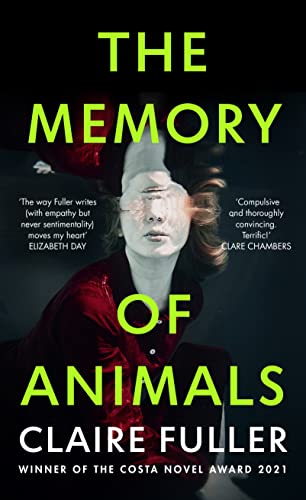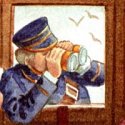The lockdown during the pandemic of 2020/21 produced a good deal of writing from people forced to be alone in a room. Celebrity and established authors produced memoirs, novels, children’s books. The L word might be a turn-off for many people – after all, why write about something we all experienced and are happy to put behind us? However, Clare Fuller has written a lockdown novel which has massive ambition: part thriller/speculative fiction, part sci-fi and part creative non-fiction.

The protagonist is a young woman called Neffie who has abandoned her studies in marine biology. She has taken a fill-in job at an aquarium where she acts as a facilitator between the exhibits and the visitors. To earn some extra money, she volunteers to take part in a vaccine trial. During her drugged-up time in isolation, a pandemic rages through the world and she wakes to a drastically changed life. Now she has to live and negotiate with a handful of her fellow volunteers and find a way forward through this crisis.
This is the principal strand of this ambitious novel. I found it to be gripping and a page-turner which had me hooked as I followed Neffie’s life within the bubble of the vaccine volunteers.
However, the author’s ambition has built in two other strands. One of Neffie’s team-mates has brought along a contraption known as The Revisitor. This allows a person to relive in vivid fashion, memories from their childhood and adulthood. Neffie becomes addicted to this and we relive her memories as she meets again her father, Baba, and revisits her childhood in Greece. This strand takes us into the realm of sci-fi.
There is a third strand which takes the form of letters from Neffie to ‘dearest H’. This is revealed to be an octopus in the aquarium where Neffie works. These letters reveal a great deal of fascinating and extraordinary details about the lives and abilities of octopi. But although this strand would be very powerful as a piece of creative non-fiction, I struggled to see the relevance to the principal strand of Neffie and her predicament in the vaccine isolation ward. Was the intention to have the octopus as a symbol of incarceration/liberation? Unfortunately, although it was interesting, it became increasingly irrelevant and began to sap the narrative pace of the main strand.
So these three strands of speculative/thriller fiction, family history seen through a sci-fi device and creative non-fiction concerning octopi are an ambitious mix. But, at the two thirds point, the thrilling thrust of the first half began to slump and this novel became a dull plod through to the end – a great shame for a novel which began with such great pace and intrigue. Just one of these strands would make a great piece so I was bemused as to why all three were combined into a single volume. Unfortunately the whole is less than the sum of its parts.
